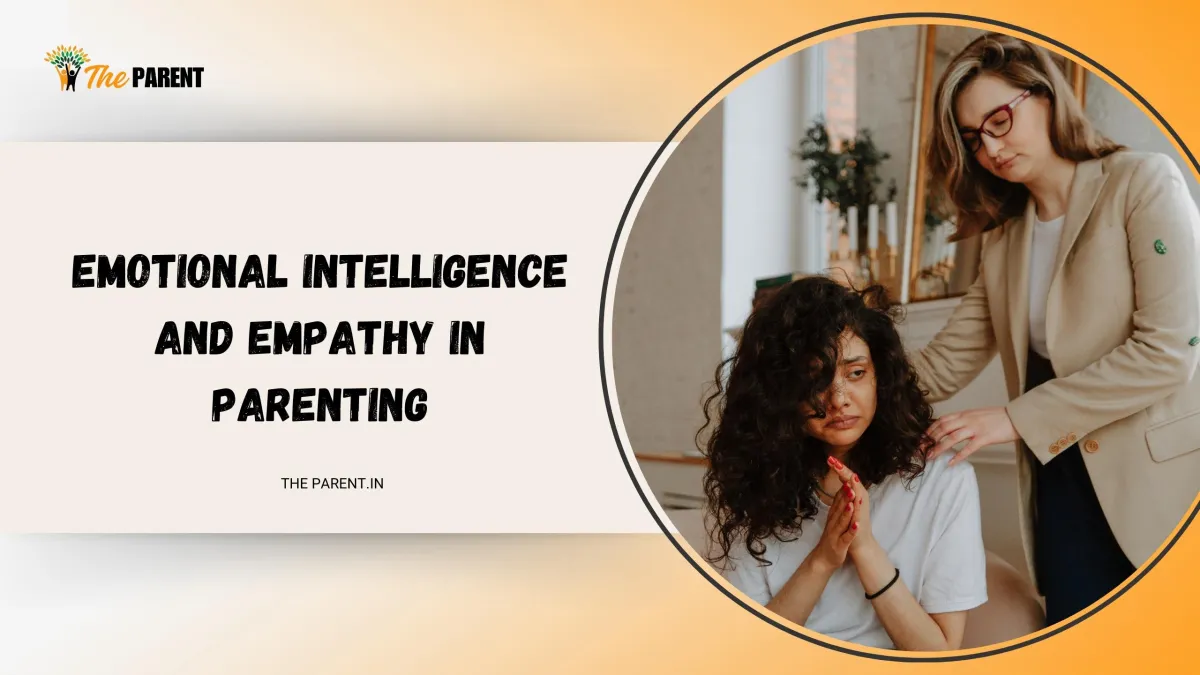
Emotional Intelligence and Empathy in Parenting
Parenting in today’s world is not just about providing food, shelter, and education. It is about raising children who can understand their own feelings, connect with others, and handle challenges with balance. This is where emotional intelligence comes in. It includes empathy, self-awareness, and emotional regulation. These skills are as important as academics because they shape how children interact with the world.
Why Emotional Intelligence Matters
Research shows that children with higher emotional intelligence perform better in school, manage stress more effectively, and build stronger relationships. A study by Yale’s Center for Emotional Intelligence revealed that students trained in emotional skills showed 11 percent higher academic achievement compared to peers who were not. This makes emotional development a long-term investment in your child’s future.

Empathy: Seeing Through Another’s Eyes
Empathy is the ability to understand and share the feelings of another person. Imagine your child sees a friend drop their toy. A child who has developed empathy will try to comfort their friend rather than laugh. Teaching empathy begins with parents modeling kindness and acknowledging feelings.
For example, saying, “I know you’re upset because the game ended, and that’s okay.” Small conversations like these build a foundation for compassion.
Self-Awareness: Knowing What You Feel
Self-awareness means recognizing your own emotions and their impact. For children, this could mean noticing when they are frustrated before they throw a tantrum. Parents can help by giving names to emotions. Instead of saying “stop crying,” you can say, “I see you are sad because your toy broke.” This not only validates their feelings but also helps them understand themselves better.

Emotional Regulation: Handling Feelings With Balance
Emotional regulation is the ability to manage emotions in healthy ways. It is not about suppressing anger or sadness but learning how to respond constructively. For example, teaching children to take deep breaths when upset or to talk about their frustration instead of hitting shows them practical coping tools. Adults can model regulation by staying calm during conflicts instead of shouting.
Real-World Parenting Examples
Morning Routines – Instead of yelling when a child is slow, encourage them by asking how they feel about mornings. This builds awareness.
Sibling Conflicts – Guide children to express why they are upset rather than focusing only on punishment. This fosters empathy and communication.
Homework Stress – Teach children to pause, breathe, and break tasks into smaller steps. This is emotional regulation in practice.
How Parents Can Develop These Skills Too
Children learn most from what they see. If parents show empathy, stay self-aware, and regulate emotions, children naturally mirror this behavior. Even simple practices like journaling, family discussions, or mindfulness activities can strengthen these skills for both parents and children.
Emotional intelligence is not just a parenting trend. It is a life skill that empowers children to grow into resilient, kind, and confident adults. By focusing on empathy, self-awareness, and emotional regulation, parents are not just raising kids but shaping the leaders of tomorrow.


